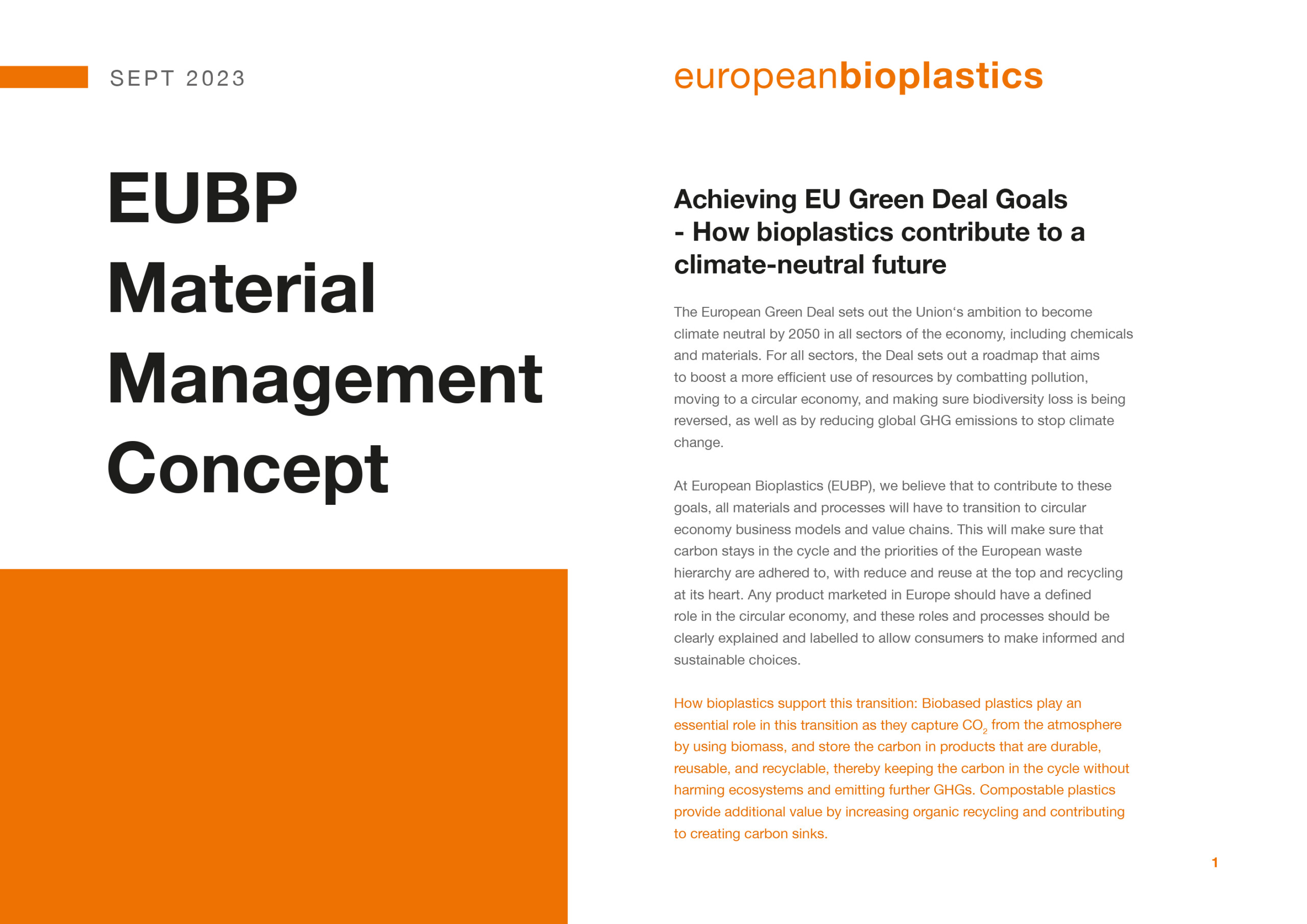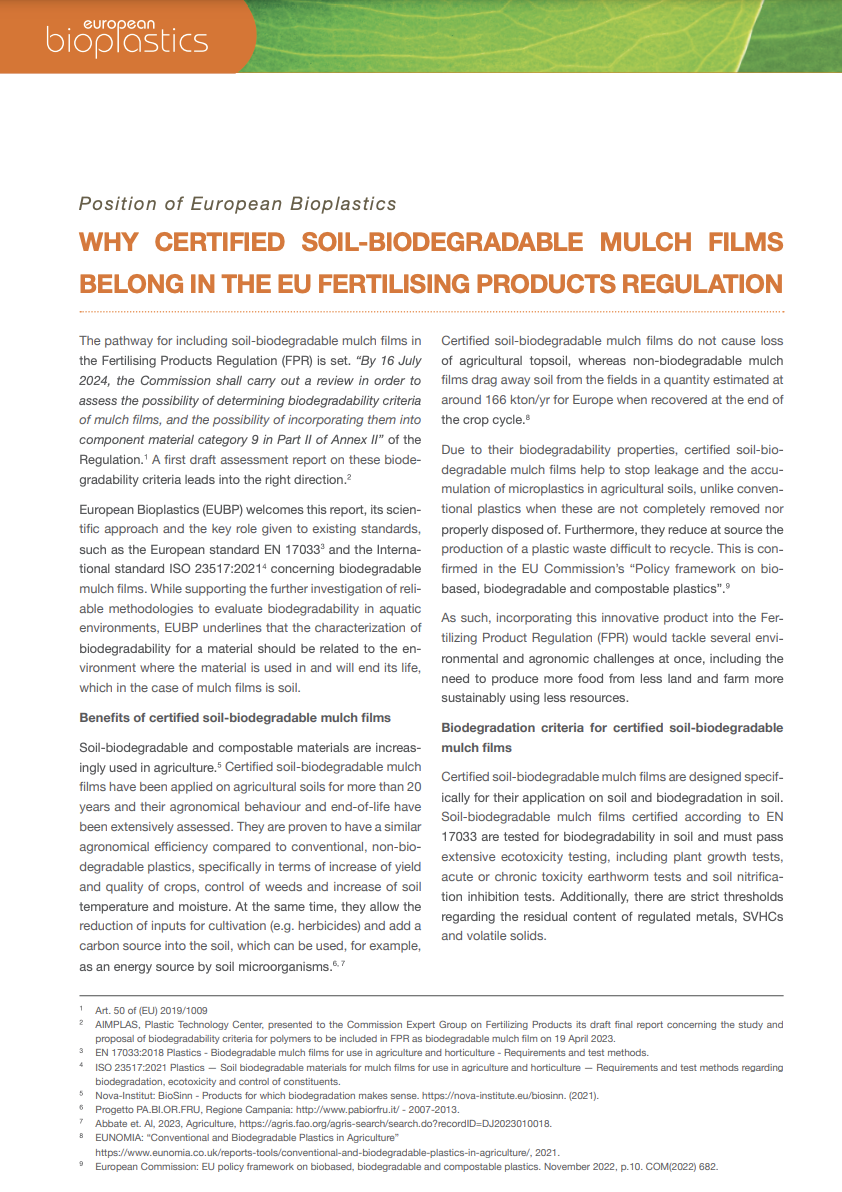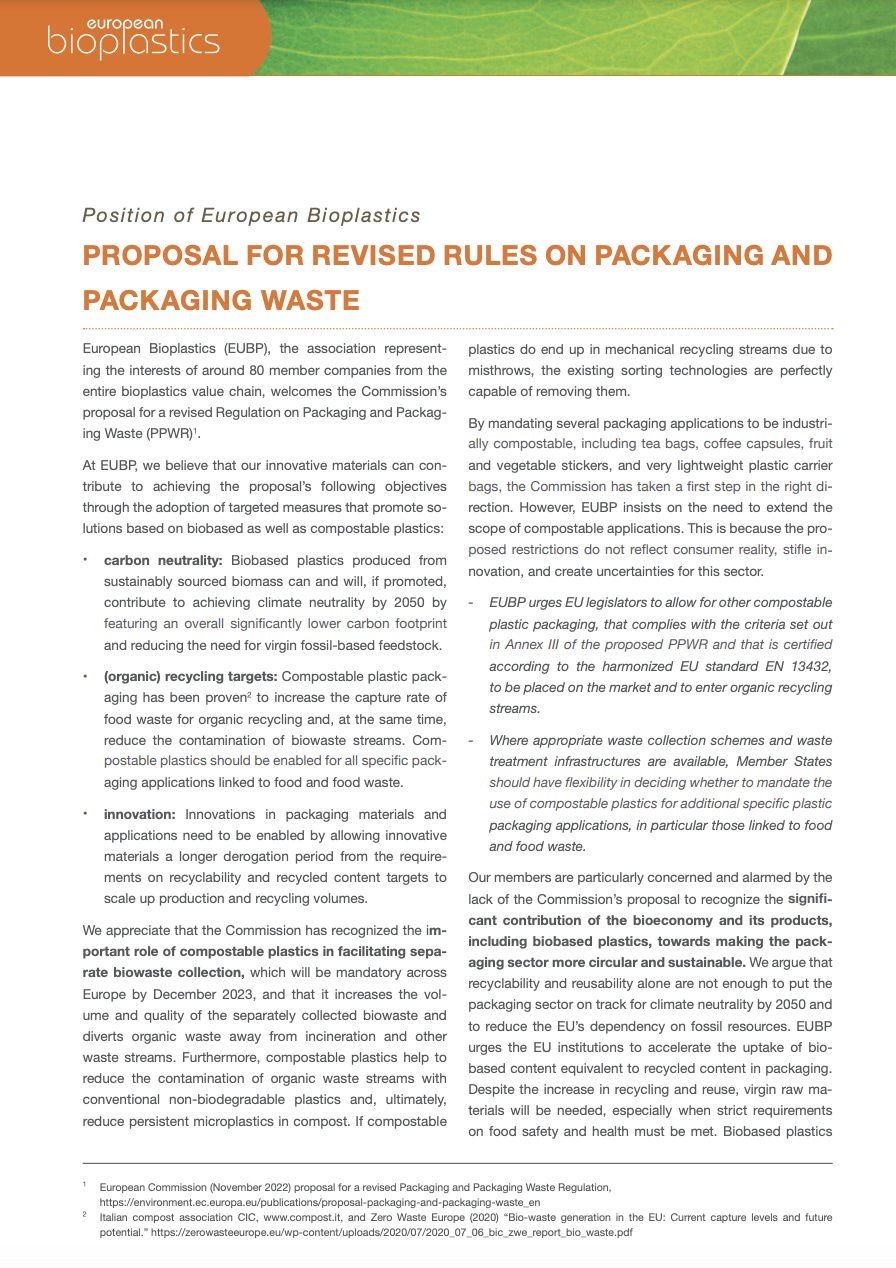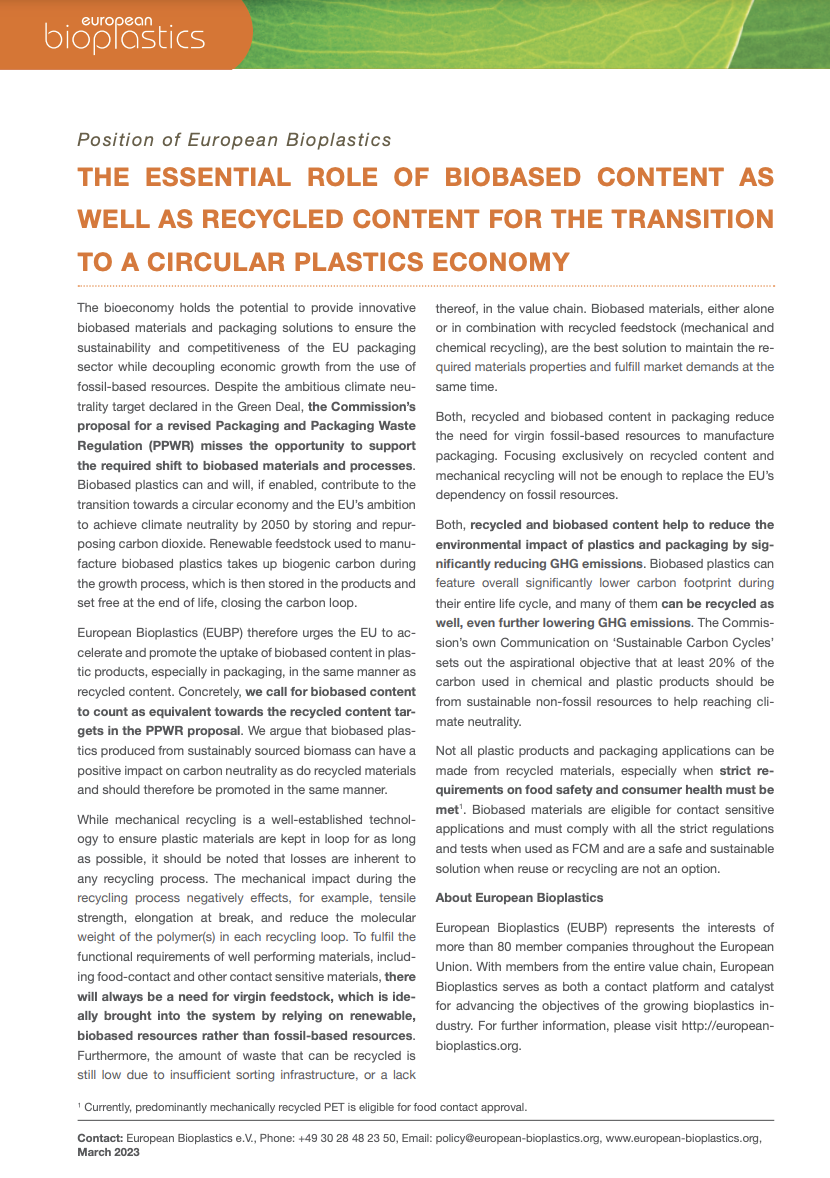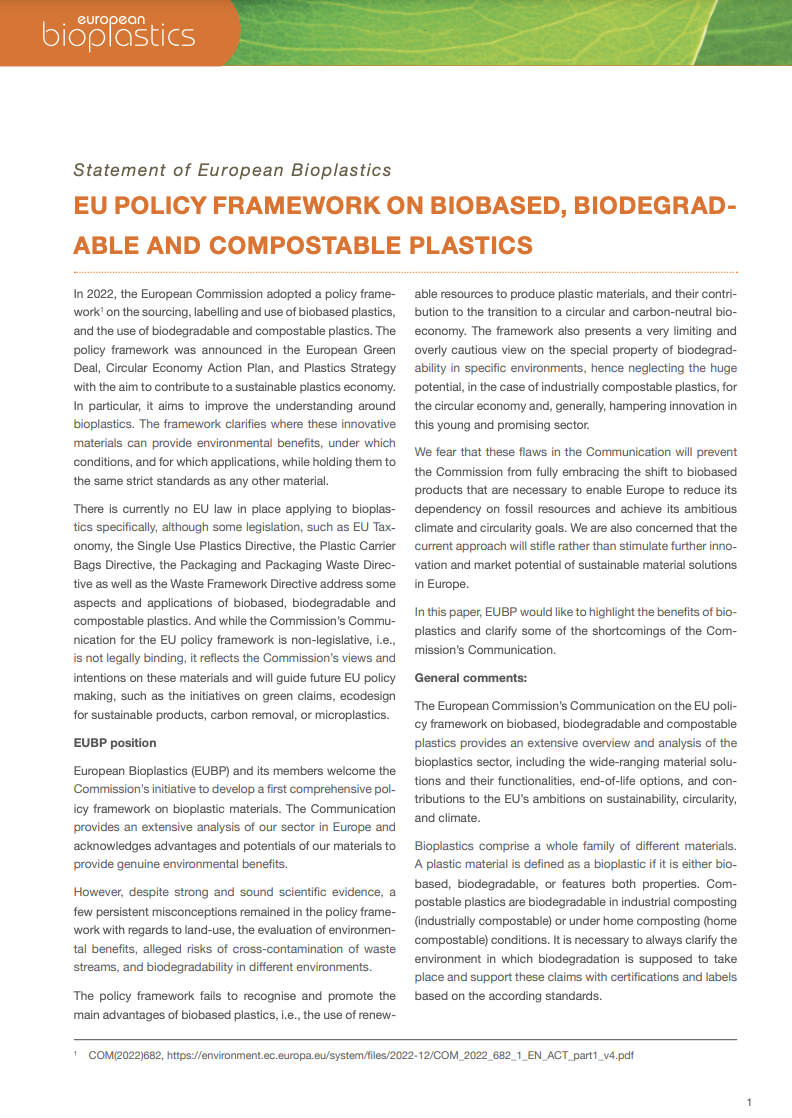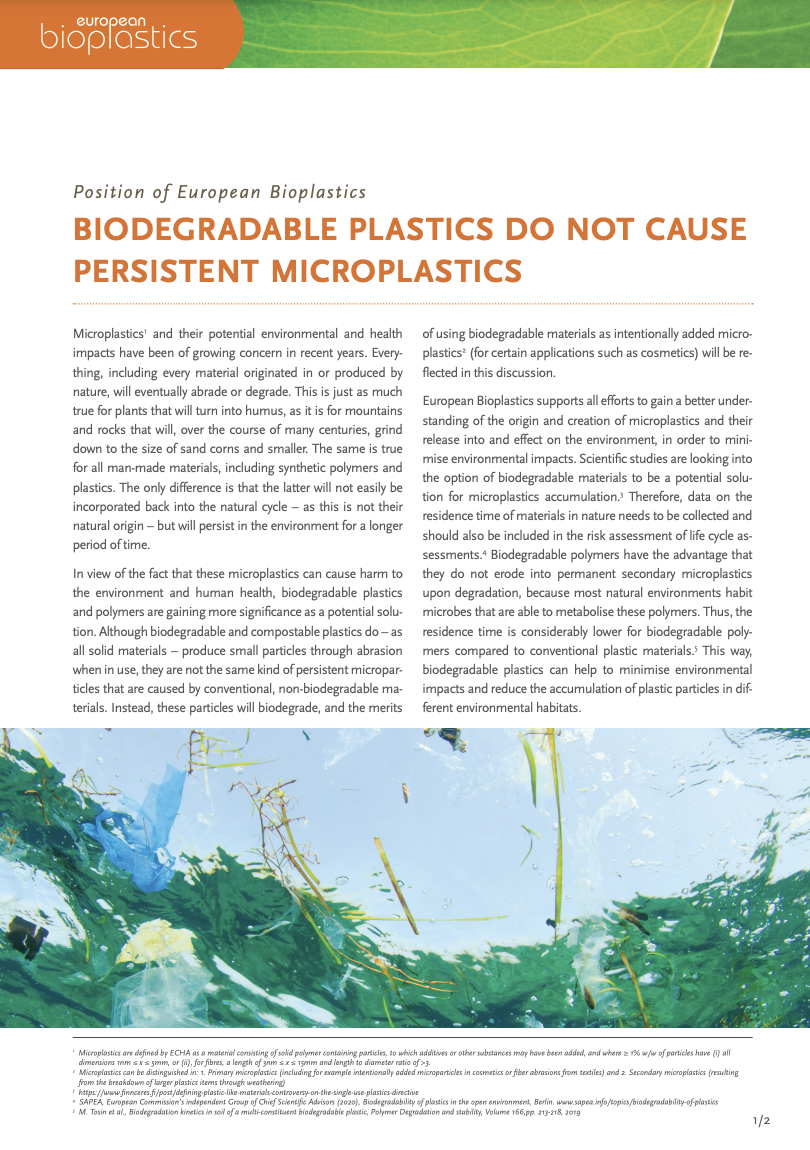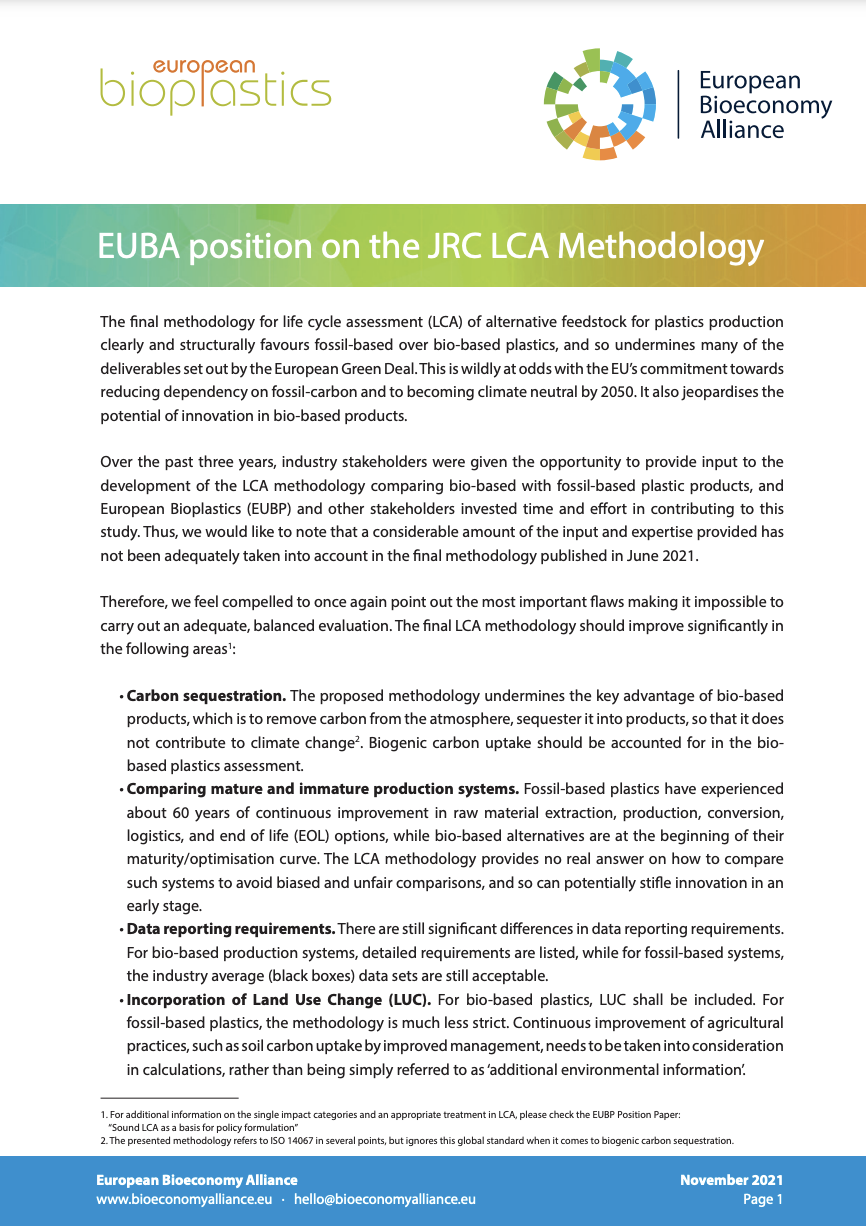EUBP Material Management Concept
Open the document Achieving EU Green Deal Goals - How bioplastics contribute to a climate-neutral future The European Green Deal sets out the Union‘s ambition to become climate neutral by 2050 in all sectors of the economy, including chemicals and materials. For all sectors, the Deal sets out a roadmap that aims to [...]
